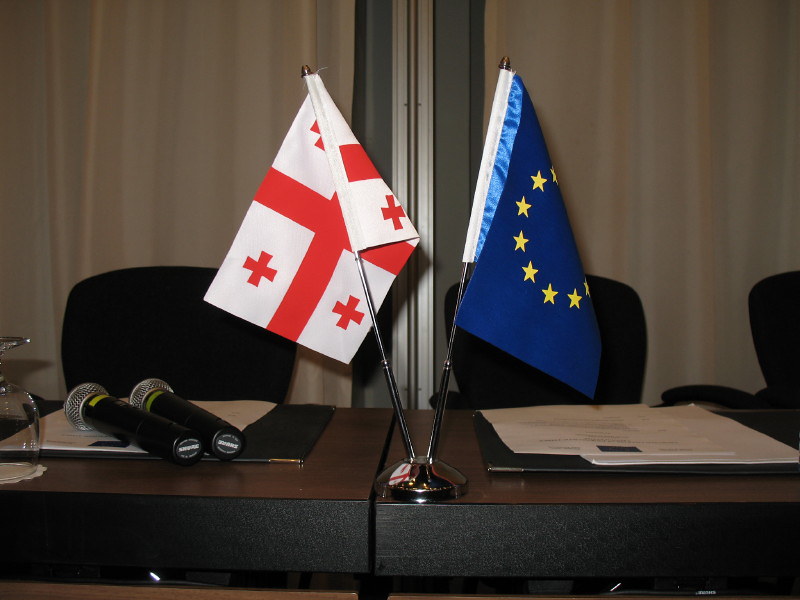Tbilisi's path towards the European Union
The decision on Georgia's membership application is expected at the European Council next week. Brussels has already opened up to enlargement as a strategic objective, but asks for guarantees on freedom of public opinion and the role of the oligarchs in the country.
Tbilisi (AsiaNews) - The draft document of the European Council regarding Georgia's request to join the EU will be discussed on December 12, and includes a series of priorities on which concrete steps are expected from Tbilisi.
In particular, the primacy of the law, human rights, the work of democratic institutions, the active participation of civil society, the de-oligarchisation of the country and the correspondence with the policies of the European Union are highlighted.
The foreign ministers of the member states will make their assessments on these issues, and in the following days (14-15 December) their leaders will make a final decision. The document, hailed in Georgia as a great political success by both the majority and the opposition, each attributing the credit to itself, was drawn up last November 8, when the special commission examined the situation of 10 countries that aspire to European integration: Georgia, Ukraine, Moldova, Montenegro, Serbia, North Macedonia, Albania, Bosnia-Herzegovina, Kosovo and Turkey.
As stated in the document, “the enlargement of the EU is a decisive geo-strategic contribution to the achievement of peace, security, stability and progress. It is a driving force for the improvement of the economic and social conditions of European citizens, and a reduction of the disparity in living standards between countries… Russia's aggressive war against Ukraine shows the reasons for this strategic priority.”
As regards Georgia specifically, the Council invites the country to demonstrate clear harmony with the values of the European Union: "Continue along the path of the reforms indicated by the Commission, in an inclusive and in-depth order... we appeal to all the political forces of the Republic of Georgia, so that they can demonstrate a capacity for constructive collaboration and dialogue, overcoming polarizations and abstaining from actions that could further exacerbate political tension, disintegrate the country's democratic institutions and derail the entire reform project".
Also indicated are the need to strengthen state institutions, the defense of representatives of LGBT communities, the fight against disinformation, with particular attention to the freedom of the mass media, as well as taking the necessary measures to free ourselves from dependence on political-economic oligarchies, guaranteeing the holding of truly free elections by 2024. Under these conditions, the commission supported Georgia's candidacy to become a member of the EU, which could be accepted together with those of Ukraine and Moldova, forming an entire European integration zone of ex-Soviet countries, free from Russia's expansionist aims.
As stated by the former foreign minister of Georgia Sergi Kapanadze, founder of the Association for Reforms, "the doors have opened, and we can start a new path, now everything depends on what relationship with Europe and with European identity in general the Georgian people now intend to have... The leaders of the European institutions recognize that our country is part of Europe, but we still have to take many steps, detaching ourselves from a past that still weighs on our shoulders, and imagining a future that everything still needs to be built: we are only at the beginning of the journey”.
Photo: Flickr /Ralph Hälbig
07/02/2019 17:28
24/10/2019 17:56







.png)










